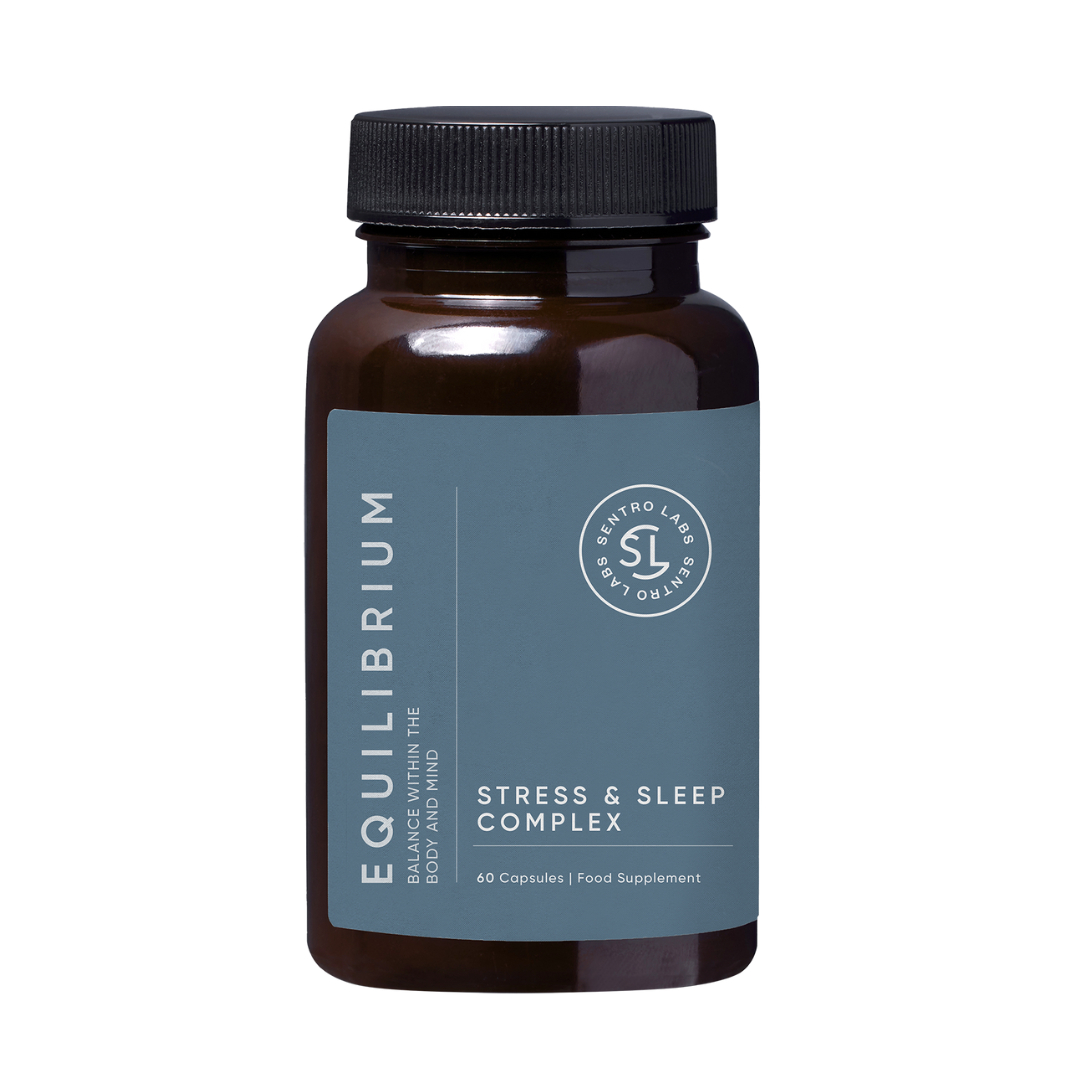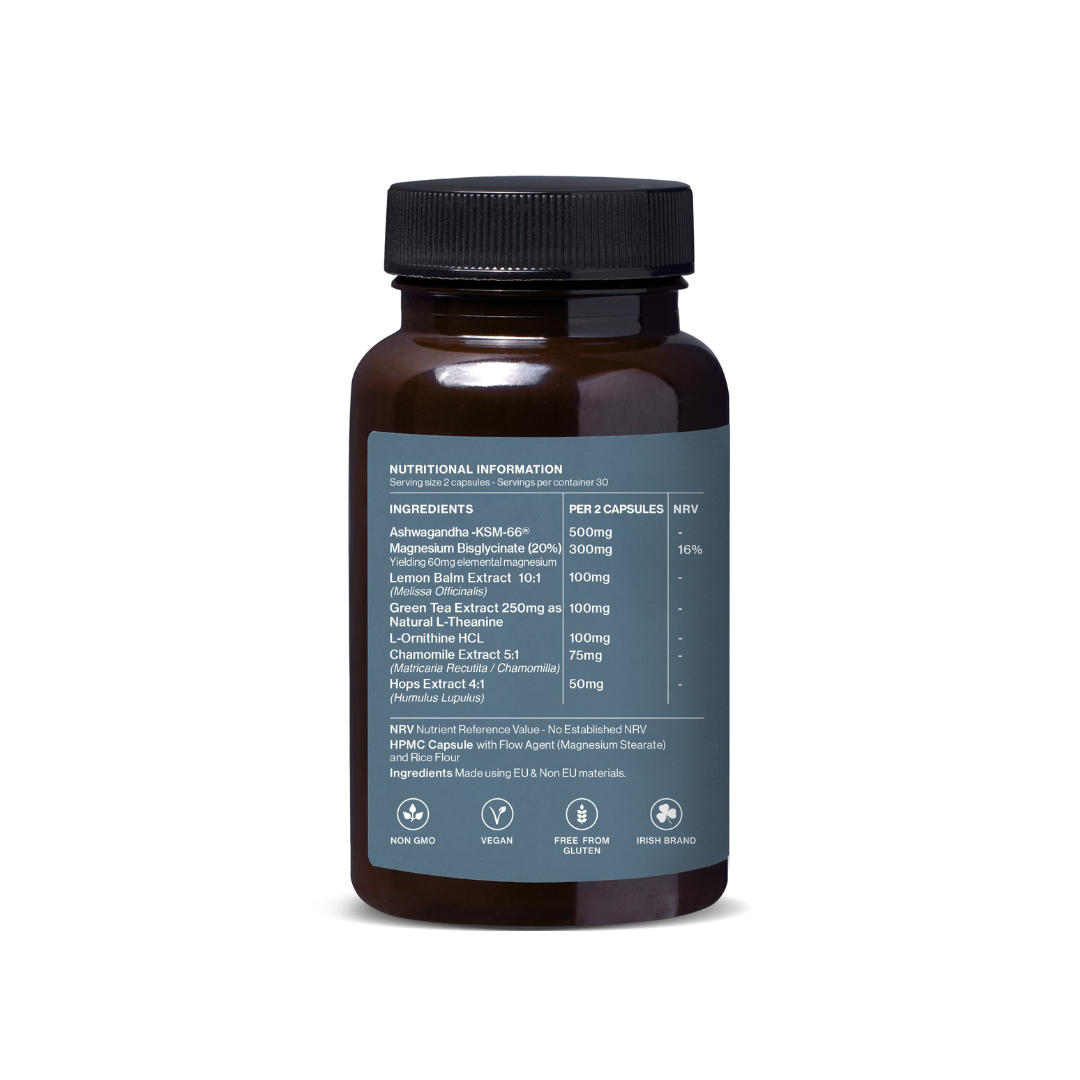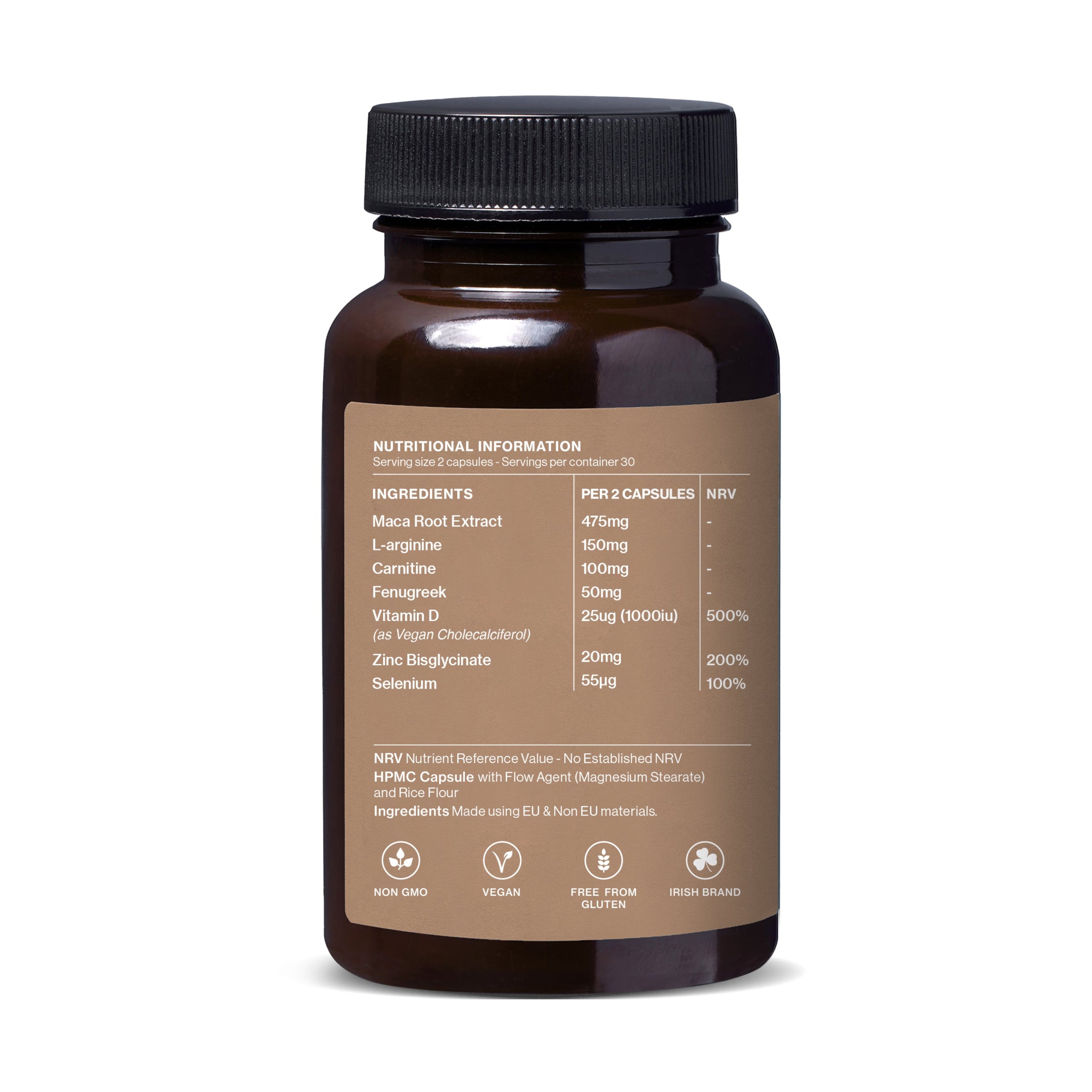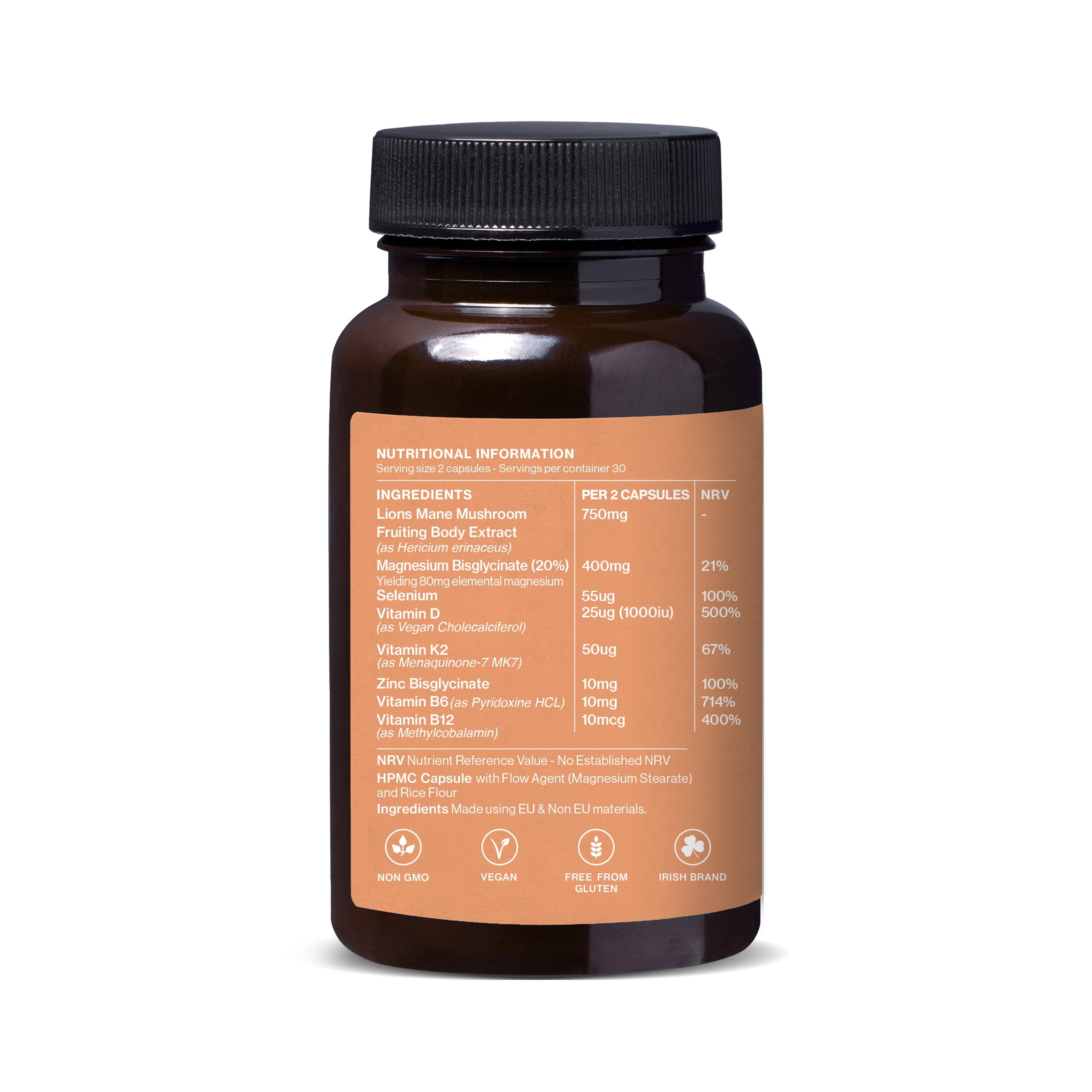Perimenopause is a significant life phase for women, typically occurring in the years leading up to menopause, marked by fluctuating hormone levels and various physical and emotional changes. Recognising and managing these changes is key to maintaining health and well-being throughout this transition.
In this blog, we explore the impact of hormonal changes during perimenopause, how these affect sleep and mood, and the connection between bone health and magnesium. We’ll also explain the benefits of magnesium, including its impact on anxiety and stress.
Hormonal Changes During Perimenopause
Perimenopause is marked by a gradual decline in oestrogen, the hormone essential for reproductive health, which also plays a role in bone density, mood regulation, and sleep. These hormonal shifts can lead to a wide range of symptoms, from irregular periods and hot flashes to more subtle effects like mood changes and sleep disturbances. Understanding these shifts can provide insight into the causes of common symptoms and help in finding ways to alleviate them:
Effects on Sleep and Mood
One of the most common complaints during perimenopause is difficulty with sleep, which can manifest as insomnia, frequent night waking, and poor sleep quality. Oestrogen affects the production of serotonin, a neurotransmitter that helps regulate mood, and the reduction of oestrogen levels can make women more prone to mood swings, anxiety, and irritability.
Studies suggest that magnesium, a mineral with sleep-enhancing properties, may help improve sleep quality during perimenopause. Magnesium influences the body’s internal clock, known as the circadian rhythm, which controls the sleep-wake cycle. Low levels of magnesium can disrupt this cycle, leading to restlessness and difficulty in achieving deep, restorative sleep. Magnesium’s calming effects on the nervous system may also aid in mood regulation, helping to alleviate the anxiety and irritability commonly experienced during perimenopause. This is even more effective when combined with supplements like L-Theanine or Ashwagandha.
Bone Health and Perimenopause
Bone health is another area significantly affected by the decline in oestrogen levels during perimenopause. Oestrogen is integral to the process of bone renewal, where old bone cells are replaced by new ones. As oestrogen decreases, bone breakdown tends to outpace bone formation, leading to a loss of bone density and an increased risk of osteoporosis, particularly as women approach menopause.
How Magnesium Supports Bone Health
Magnesium plays a crucial role in maintaining bone density and strength, as around 60% of the body’s magnesium is stored in the bones. It supports bone health by aiding in the transport of calcium and other minerals into the bone structure, helping to maintain strong bones and reducing the rate of bone loss. A diet rich in magnesium, or magnesium supplements, may be beneficial in countering some of the effects of oestrogen decline on bone health.
Magnesium: A Key Mineral for Perimenopause
Magnesium is vital to overall health, particularly during perimenopause, as it supports essential bodily functions including energy production, muscle relaxation, and stress regulation. Magnesium's role in health is often overlooked, but a deficiency can lead to several issues, including fatigue, sleep disturbances, and mood swings:
- Energy Production: Magnesium is essential for converting food into energy, supporting metabolic processes that keep you energised and combat fatigue.
- Muscle Relaxation: It helps relax muscles, easing tension and pain, and reducing the risk of cramps, which can become more common as hormone levels shift.
- Stress Reduction: Magnesium has calming effects on the nervous system, making it valuable for managing anxiety and stress, which can be heightened during perimenopause.
By incorporating magnesium-rich foods into the diet or through supplements, women may find relief from perimenopause symptoms and maintain better health overall.
Magnesium's Role in Sleep and Mood
Magnesium plays a key role in sleep regulation and mood stability, both of which are commonly affected during perimenopause. The mineral aids in the production of neurotransmitters that promote relaxation and is involved in the regulation of melatonin, the hormone that controls sleep cycles. Magnesium also helps calm the nervous system by balancing certain brain chemicals, which can contribute to improved sleep quality and reduced feelings of stress and anxiety.
- Improved Sleep Quality: Magnesium supports the production of melatonin and GABA, two compounds involved in promoting restful sleep. Women experiencing insomnia or poor sleep quality during perimenopause may benefit from adequate magnesium intake, which can help regulate their sleep cycle.
- Mood Regulation: Magnesium has shown potential in stabilising mood by influencing serotonin production and balancing stress response. This may help reduce mood swings, anxiety, and irritability, common symptoms during perimenopause.
Research suggests that magnesium supplements may help alleviate symptoms like poor sleep and mood disturbances, particularly when coupled with other lifestyle changes such as exercise, a balanced diet, and stress management.
Magnesium and Bone Health: A Crucial Connection
Bone density naturally decreases with age, but the decline can accelerate during perimenopause due to the reduction in oestrogen. Magnesium supports bone health by contributing to bone density and structure. It helps in calcium transport and deposition, which is critical in maintaining strong bones. By keeping magnesium levels adequate, women may reduce the risk of osteoporosis and other bone-related issues as they age.
The Benefits of Magnesium for Anxiety and Stress
Magnesium has often been referred to as the "calming mineral" due to its role in reducing anxiety and stress. Low magnesium levels have been associated with increased anxiety, as the mineral plays a role in regulating neurotransmitters that influence mood and relaxation.
Supplementing with magnesium may help reduce symptoms of anxiety and stress, making it easier for women to manage the mental and emotional challenges of perimenopause. The magnesium glycinate form is highly absorbable and particularly effective in supporting calmness, relaxation, and improved sleep, all of which can contribute to a greater sense of well-being.
How to Maintain Adequate Magnesium Levels
Magnesium deficiency is common, especially among women, and can exacerbate perimenopausal symptoms. Some signs of low magnesium levels include:
- Chronic fatigue or low energy levels
- Insomnia or poor sleep quality
- Muscle cramps and spasms
- Headaches or migraines
- Mood changes, such as irritability or anxiety
Maintaining sufficient magnesium levels can be achieved through diet, supplements, or a combination of both. Foods rich in magnesium include dark leafy greens, nuts, seeds, whole grains, and dark chocolate. Including these foods in your daily diet can help increase magnesium intake naturally.
For women who may struggle to get enough magnesium through food alone, supplements may be a practical option. It’s essential to consult a healthcare professional before starting any supplement regimen to ensure it’s appropriate for individual health needs.
For women over 30, the recommended daily intake of magnesium is around 320 mg. However, individual needs may vary based on health conditions and lifestyle, so it’s always best to consult a healthcare provider.
Types of Magnesium Supplements
Magnesium is available in various forms, each with specific benefits and potential side effects:
- Magnesium Oxide: This is one of the most common forms but is less easily absorbed. It may be useful for those seeking occasional constipation relief but is less effective for increasing magnesium levels in the body.
- Magnesium Citrate: Known for its relatively high bioavailability, magnesium citrate is often used for its calming effects and is commonly recommended for those with mild digestive issues.
- Magnesium Glycinate: This form is highly bioavailable and gentle on the stomach, making it a good option for managing stress, promoting sleep, and supporting bone health.
Choosing the right form of magnesium can depend on individual needs, but magnesium glycinate is particularly well-regarded for supporting mental calmness, sleep quality, and bone health. EQUILIBRIUM is formulated with magnesium bisglycinate, a highly bioavailable form of magnesium that is easily absorbed by the body. This key ingredient helps to:
- Relax muscles and relieve tension: Magnesium helps to relax muscles, reducing symptoms of stress and anxiety.
- Improve sleep quality: By promoting relaxation and reducing muscle tension, magnesium can contribute to a more restful night's sleep.
- Support heart health: Magnesium plays a role in maintaining healthy blood pressure and heart rhythm.
- Boost mood: Magnesium can help alleviate mood swings and depression.
By incorporating magnesium into your daily routine with EQUILIBRIUM, you can support your overall well-being and experience the numerous benefits of this essential mineral.
For those who prefer to increase magnesium levels through diet, there are several foods that are excellent sources of magnesium. Incorporating these foods into daily meals can provide significant health benefits:
- Dark Chocolate: Contains a good amount of magnesium and can be enjoyed in moderation as a treat.
- Leafy Greens: Vegetables like spinach, kale, and Swiss chard are high in magnesium and other nutrients.
- Nuts and Seeds: Almonds, cashews, pumpkin seeds, and sunflower seeds are rich in magnesium.
- Whole Grains: Foods like brown rice, oats, and quinoa provide magnesium and are a good source of complex carbohydrates.
- Legumes: Beans, lentils, and chickpeas are also high in magnesium and offer a plant-based protein source.
By incorporating these magnesium-rich foods, women can support their health during perimenopause naturally.
Practical Tips for Managing Perimenopause
Beyond magnesium, lifestyle changes can also help manage symptoms and improve overall well-being:
- Balanced Diet: Eating a diet rich in vegetables, fruits, whole grains, and lean proteins can support hormone balance and energy levels.
- Regular Exercise: Physical activity can help reduce stress, improve mood, and maintain bone health.
- Stress Management: Mindfulness, meditation, and relaxation techniques can help reduce anxiety and improve sleep quality.
- Adequate Hydration: Drinking enough water is essential for overall health and can help with energy and skin health.
- Consult a Healthcare Professional: Regular check-ups and personalised advice from healthcare providers can provide valuable guidance for managing perimenopause.
Final Thoughts on Magnesium and Perimenopause
Perimenopause brings a range of changes, both physically and emotionally. Understanding the role of magnesium in managing these changes can be a valuable part of a comprehensive approach to health.
One way to alleviate these symptoms is by ensuring you're getting enough magnesium with a supplement. EQUILIBRIUM, with its potent blend of natural ingredients, including magnesium bisglycinate, offers a comprehensive solution for perimenopausal women. By replenishing your magnesium levels, EQUILIBRIUM can help alleviate hot flashes, night sweats, mood swings, and sleep disturbances.
Take the first step towards a more comfortable perimenopause. Try EQUILIBRIUM today.























Share:
Lion’s Mane Benefits: Everything You Need to Know
A Holistic Approach to Perimenopause and Menopause Wellness